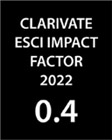Solymár: the “Golden Village”
DOI:
https://doi.org/10.17649/TET.11.4.449Abstract
Development of Solymár, a prosperous village in the vicinity of Budapest has been determined by its geographical situation since the beginning of the 19th century. Although, the settlement was part of the expanding agglomeration of the Capital, local economic basis such as fruit growing and building material industries emerged as important element of prosperity. This limited economic independence was preserved also in the centrally planned system, as a result of the establishment of new local industries such as clothing and plastic manufacturing. In this way, Solymár has always been less dependent on the economy of the metropolis than the rest of the agglomeration belt.
Despite the temporary decline in local industries, re-organisation of the privatised companies and the expansion of new enterprises (particularly, in trading, food industry and construction) strengthened local economic basis. The prosperity rested on local industrial basis, vicinity of a large-scale market furthermore, on the advanced infrastructure system (including gas and sewage).
Urban sprawl also had a significant role in local development. The process commenced with the 1950ies is still going on. The majority of immigrants are wealthy and/or highly qualified people who are important actors of local economy, act as well-to-do consumers and represent local interests in social organisations. One of the key factors of the success of Solymár is the integration of immigrants thitough the conciliation of interests of "natives" and "newcomers". In this way, traditions and cultural character of the village was preserved. German population had an important part in saving local identity.
Successful policies of the local government were also an important tier for local prosperity. This factor is based on the collaboration of the government, social organisations and local entrepreneurs. Access to information, recognition of mutual interests and permanent co-operation are fundamental for smooth operation of a successful settlement like Solymár.
Downloads
Published
How to Cite
Issue
Section
License
Authors wishing to publish in the journal accept the terms and conditions detailed in the LICENSING TERMS.






